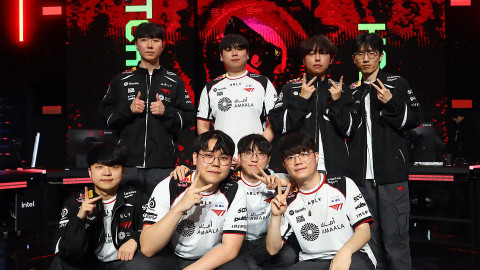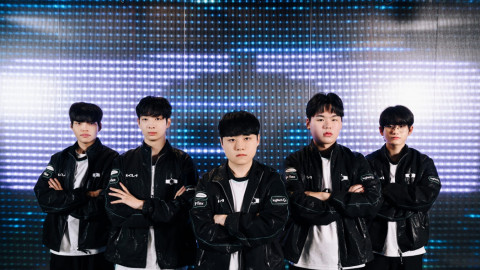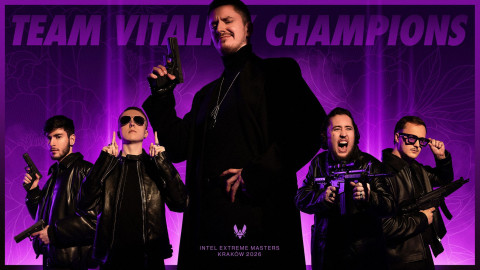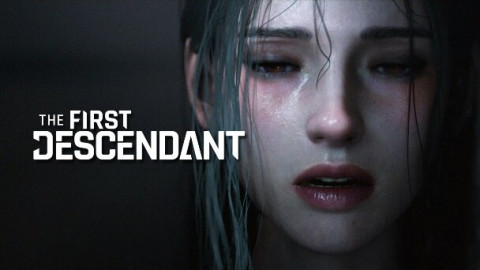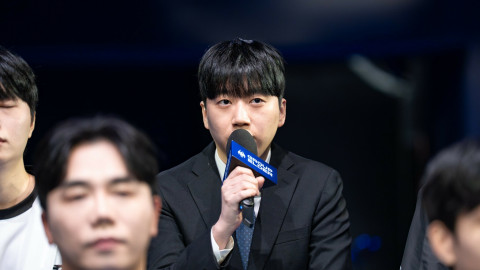Chances are there is still a lot you can learn about competitive Overwatch. The folks at Gamersensei.com are, in fact, counting on it. Founded in 2016, the startup company quickly raised an impressive $2.5 million dollars in funding and have since acquired valuable segments of the niche game-coaching market including DotaCoach.org and most recently Leaguecoaching.gg.
Now, the site offers coaches for 15 PC games. The majority of them pillars of the current esports ecosystem such as Fortnite, Hearthstone, Counter-Strike, PUBG, and Overwatch.
Fighting game fans will just have to keep waiting I suppose.
Private practice
The audience of gamers looking to improve their skills isn't new, but the methods of delivering content to them have changed. Whereas the concept of private video game coaching was traditionally reserved for the most hardcore elite, sites like Gamer Sensei are normalizing the idea of average gamers paying personal coaches for one to five-hour training sessions.
Nicholas "Shifty" Travis is one such coach. He specializes in Overwatch and charges $25 an hour: reasonable if you consider his experience with the game. However, a more recognizable coach, like Seb "Numlocked" Barton charges a whopping $100 an hour for his services. Upon searching the website, you can find tons coaches for a variety of prices, including some that charge as little as $8 dollars an hour -- just barely above the minimum wage in the US.
Coaches list every skill imaginable as a way to advertise themselves. One coach asks students to submit VODS of their play before the lessons so she can prepare a detailed course. Another coach boasts his 65% hook accuracy when playing Roadhog.
To better understand this growing market, I spoke with Shifty, the Overwatch coach, about his experiences coaching and his impression of the clientele:
How did you first get into coaching? Did you have pro-player aspirations (or still do?)
I've always enjoyed helping people improve at games, but I did start off as a player competing in tournaments in a variety of different games. When I was competing in some of the first tournaments in Overwatch, I noticed how a lack of leadership and focused direction were holding a lot of potentially great teams back, including my own. As a player on a team, it’s difficult to provide unbiased feedback to your teammates as your perspective is limited when playing the game.
I found that the best way to overcome this was to take on a coaching role where I could see multiple perspectives at once and fine-tune the strategic elements of a team while improving weaknesses one player at a time. With that focus, I worked my way up to coaching for pro esports organizations like Dignitas and Cloud9. I've experienced both sides - being a player and a coach. I've seen what pro players go through and must do, experiencing both incredibly challenging, but rewarding experiences.
That said, I enjoy pro coaching more than being a pro player. Gamer Sensei has provided a great platform for me to be able to coach a lot of different types of people from all over the world!
Have you noticed an increase in the demand for coaching?
Absolutely, both from the individual level as well as the professional level. It used to be that most people couldn’t see the full benefit of getting a coach for playing a video game, however, it’s not different than getting a coach for anything else in life. Do you expect to pick up Golf and play at a semi-pro level by just trial and error and reading books and watching videos?
Nor should you with video games, especially when there are a lot of resources out there that are very dated and just factually incorrect. Once people started realizing that, and seeing the improvement they, and their friends are getting from coaching, people start to catch on and recognize the huge advantage they can get in learning how to correct their mistakes and improve past their previous plateaus.
Is there an average age for the people that seek your coaching?
That’s hard to say, as I’ve coached people at young as 9 and those well into their 50’s. However, if I had to guess, I would say that the average age is probably around 21-24.

Have you noticed any trends in the most common problems people face? In other words, what are the most common things you help people improve with?
Playing on the wrong sensitivity is a big one. Different genres of games have different optimal sensitivities that can great affect your consistency and accuracy. For example, RTS games you generally want higher while FPS games you want lower. Another is that most people play mindlessly on ‘auto-pilot’ that I like to call it. It’s perfectly fine to play that way for fun, but it makes improving and learning how to play better much slower.
Also, not enough players review their previous gameplay to learn from their mistakes, and instead repeat them over and over again creating bad habits.
Lastly, most players don’t consider macro decisions (how actions affect all of the other players and using that to their advantage) - and usually focus too much on micro decisions (how they can click on the enemy’s head better).
What are the goals your clientele have with regards to coaching? Is it common for them to have pro-player aspirations, or do they just want to improve for personal reasons?
Every player is different and has their own goals. Understanding their goal is usually the first thing I ask them to think about and communicate to me before we begin the lesson so that I can tailor our lesson to help accomplish that goal. These goals range from simply increasing their rank in competitive matches, improving on a particular character, improving their communication and shotcalling skills, helping prepare them for a team tryout, how to pursue and what to expect on their path to becoming a pro player, and of course, pro players themselves asking for feedback to improve for their upcoming matches.
Have you ever encountered people that are simply uncoachable? Or perhaps that concept doesn't exist?
Not a single one. There are however, people who put forth varying levels of effort in learning from their mistakes and taking what I teach them into practice, and that directly impacts how quickly they improve.
Are there any other benefits to being coached competitively outside the game?
The same problem-solving, team-building, and self-improving skills you can learn in games can also be applied outside of the game in other environments as well. While the specifics will of course be different, you can start to see parallels in a lot of different avenues if you recognize the opportunities to apply them.
What do you think is the biggest misconception about your job / role?
There is no magic shortcut. A player must understand that a coach can set the path to success before them but they themselves must be diligent enough to take those steps forward to reach their goal. It takes a lot of dedication, focus, and the right direction to obtain that success.
What is the hardest thing about your job that outsiders may not understand?
It can be a very stressful job with all the pressure you have to help others succeed, and rarely do you get a lot of credit when you do. When individual players give their thanks and positive feedback, it really means a lot to us.
Shifty is all aboard the video game coaching train, but what about reluctant passengers that think all of this is just a little too much for a video game?
No one bats an eye at a parent paying for music lessons or athletic training for their child, but Gamer Sensei is pushing towards a world where that same parent will just as comfortably pay for Fortnite or Overwatch lessons.
Playing the devil's advocate just a tad, I asked Jim Drewry, CEO of Gamer Sensei, why anyone would ever spend money on video game coaching for themselves or their children:
"Why participate in any organized recreation? Because it's enjoyable. Whether you're talking youth football, tennis, golf, or even games like chess, competing and winning are all part of the fun. Getting coached can help you play the game more effectively and win more, hopefully leading the student to get increased enjoyment out of their hobby."
Organized recreation is a good way to explain it to older generations that may not understand, but Drewry goes a step farther. After also mentioning how coaching can help teach skills like teamwork and mindfulness, he also explains how parents can also benefit from coaching in order to "keep pace" with their kids:
"Coaching can help families cross the generational divide. Unlike traditional sports where parents often have more skill then their children in esports the roles are often reversed. A parent who wants to keep pace with their kids in-game may benefit from coaching to improve skills that come more naturally to younger players."
And speaking of younger players, Fortnite coaching is a reality anyone reading this has likely either already heard of or will hear about in the future. Stay tuned for part two of this series where I speak with one of Fortnite's most prolific coaches.
-

Warcraft 3 is my one true love and I will challenge anyone to a game of Super Smash Brothers Melee.
Sort by:
Comments :0



